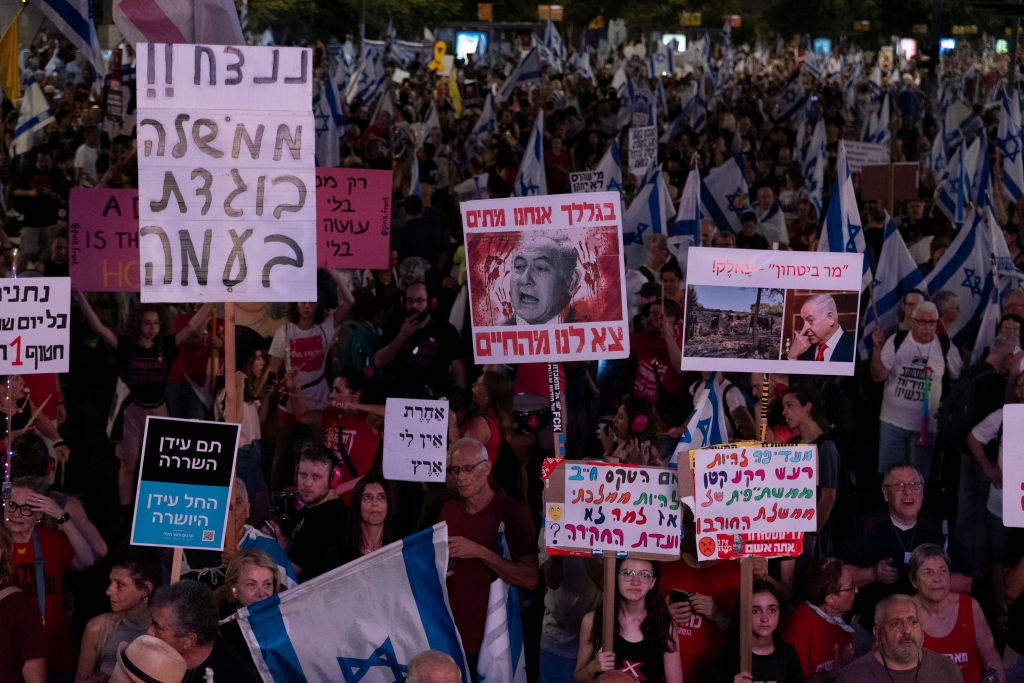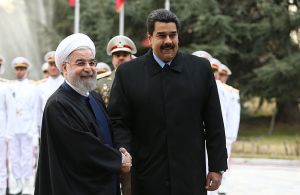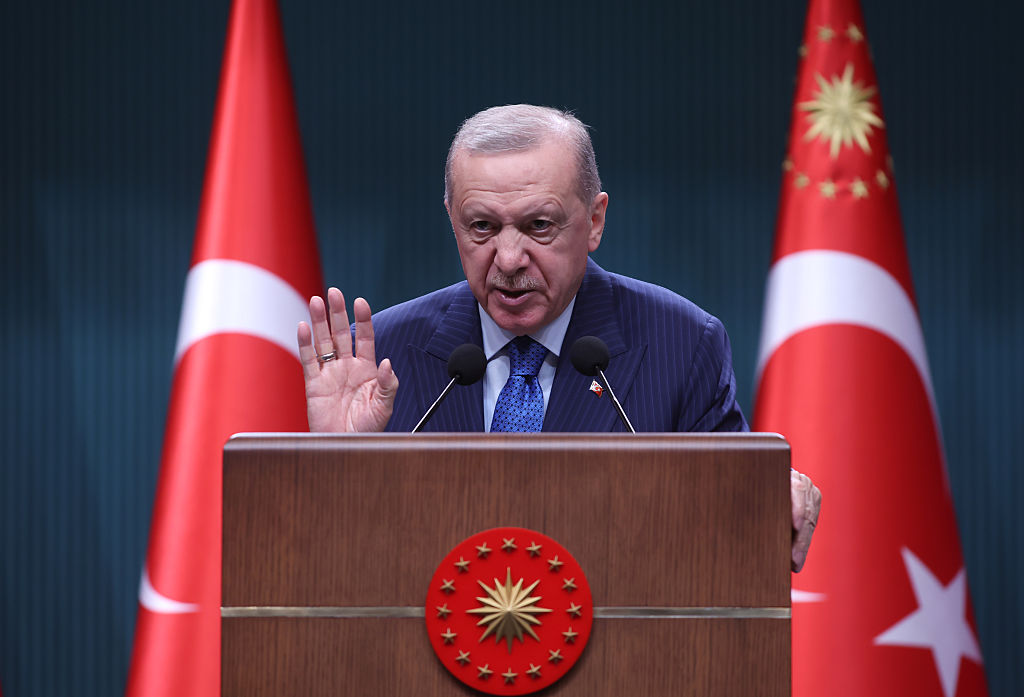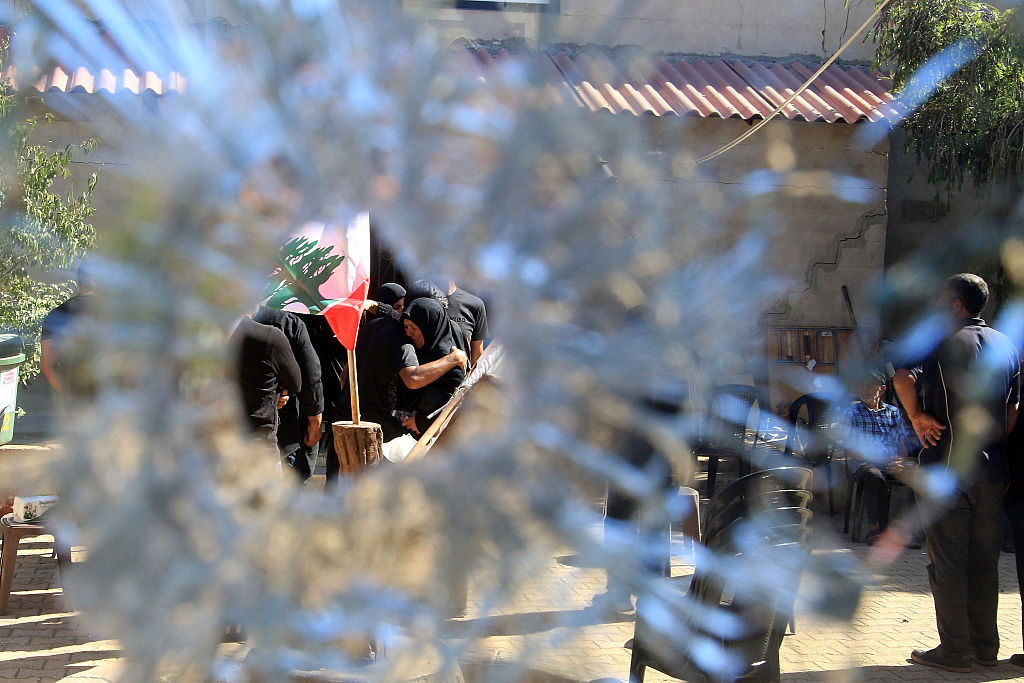The heartbreaking news that the Israeli Defense Forces have recovered the bodies of six Israeli hostages has caused rage in Israel against Prime Minister Benjamin Netanyahu. All six hostages — Carmel Gat, Eden Yerushalmi, Hersh Goldberg-Polin, Alexander Lobanov, Almog Sarusi and Master Sergeant Ori Danino — were kidnapped alive on October 7. They were brutally executed by Hamas terrorists, possibly hours before they were found Saturday in a Hamas tunnel near Rafah, in the southern area of the Gaza Strip.
Netanyahu has been accused of sabotaging negotiations for a ceasefire
Although Hamas bears the primary responsibility for murdering the hostages, many in Israel see Netanyahu as partly responsible for their deaths. For months, Netanyahu has been accused of sabotaging negotiations for a ceasefire deal by Israeli politicians, members of the defense and intelligence establishment, journalists, family members of hostages, people directly involved in the negotiations, and international leaders including President Joe Biden.
There were several chances for deals that had the support of the heads of the IDF, Shin Bet and Mossad. These deals could have saved the lives of at least some of the six hostages — who were reportedly on a list of people to be released. It’s now too late for these hostages, found with gunshot wounds to their heads and signs of long-term neglect.
Last Thursday, another major spat happened between Netanyahu and defense Minister Yoav Gallant. In a snap vote brought by Netanyahu, it was decided that IDF forces will remain in the Philadelphi corridor on Gaza’s border with Egypt and that this will be non-negotiable. The decision effectively means that a ceasefire deal with Hamas is extremely unlikely. Gallant’s position — shared by the IDF — is that the government should reach a deal, even at the price of temporarily withdrawing from the strategically important corridor in order to free hostages — maintaining that the IDF could then take the area back at a later time.
At a cabinet meeting on Thursday night, Gallant accused Netanyahu of undermining the chance for a deal, saying that Netanyahu could “decide to kill all of the hostages.” Following the recovery and identification of the hostages’ bodies, Gallant urged the cabinet to overturn the decision taken on Thursday so that the remaining living hostages can be released.
Netanyahu’s actions during the negotiations have been influenced by his own political position. A ceasefire deal is likely to cause the withdrawal from the government of several hawkish far-right politicians, including national security minister Itamar Ben Gvir and finance minister Bezalel Smotrich, triggering the collapse of Netanyahu’s coalition government. Netanyahu therefore succumbs to their demands.
If Netanyahu loses power, it would expose him to a formal investigation into the failures that led to the events of October 7. This investigation will likely place much of the responsibility on Netanyahu — whose actions over the past decade and a half helped strengthen Hamas and who reportedly ignored official warnings about a pending attack. Netanyahu has refused to establish a national inquiry, which has prompted several organizations to jointly set up a civil inquiry commission.
Netanyahu will also lose control over the justice system and the police if he’s no longer prime minister. He faces several trials for allegations of bribery, fraud and breach of trust. In direct contrast to Israel’s democratic institutions and values, Netanyahu has been trying to exert control over key institutions and positions to help him get a get out of jail free card.
One hundred and one hostages remain in captivity in Gaza. It’s estimated that thirty-five of them are dead. For the living, death could come at any moment. It remains to be seen what effect the public’s rage will have on the government’s position on negotiating with Hamas. So far, the criticism and anger directed at Netanyahu has not resulted in him accepting responsibility for his many failures. Instead, he has falsely presented himself as a victim of a system that did not warn him and kept him in the dark about the dangers of Hamas.
Any mass protests and disapproval is countered by the Israeli government’s well-oiled disinformation machine, which targets protestors and those pushing for a ceasefire deal — including the relatives of hostages. They are being portrayed as traitors and as a danger to Israel’s security. But most of the Israeli public and the media see through the attempt to discredit those who criticise the government, and the anger isn’t likely to die down.
This article was originally published on The Spectator’s UK website.


























Leave a Reply